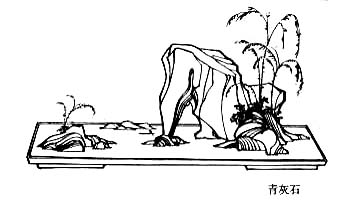三
十
六
計
36 Ji 
 – Thirty-Six Strategies
– Thirty-Six Strategies
A recently uncovered notebook of 36 proverbs commented as military tactics that helps dealing with conflicts. Tr. Verstappen (en), Doc Mac Jr (fr).
1. 瞞
天
過
海
Fool the Emperor to Cross the Sea
2. 圍
魏
救
趙
Besiege Wei to Rescue Zhao
3. 借
刀
殺
人
Kill with a Borrowed Sword
4. 以
逸
待
勞
Await the Exhausted Enemy at Your Ease
5. 趁
火
打
劫
Loot a Burning House
6. 聲
東
擊
西
Clamor in the East, Attack in the West
36ji I. 4.
Await the Exhausted Enemy at Your Ease
It is an advantage to choose the time and place for battle. In this way you know when and where the battle will take place, while your enemy does not. Encourage your enemy to expend his energy in futile quests while you conserve your strength. When he is exhausted and confused, you attack with energy and purpose.
Chinese Folk Tale
The emperor Xuan of Zhou loved to gamble on cock fights and kept a stable of specially bred fighting roosters. Although they were strong and fierce they would nevertheless lose against the roosters trained by Ji Xing Ze. The emperor therefore hired Ji to train his roosters.
Ten days had passed when the emperor went to the stables to ask if they were ready to fight.
"No." said Ji, " They are far too fierce and proud of their strength. They rush to attack even the slightest noise."
After another ten days passed the emperor returned to enquire again.
"Not yet. They are still haughty and jump at everything that moves."
After another ten days the emperor again asked the question.
"No, still not yet. Although they no longer rush to attack, they still raise their hackles and stare fiercely at the slightest provocation."
After yet another ten days the emperor again asked if the roosters were ready.
"Yes, they are nearly ready. Although some still crow from time to time, none ever change their countenance. From a distance they appear as steady is if they were made of wood. Before them, their untrained opponents would not dare accept their challenge and could only turn back and run."
Verstappen
« Attendre en se reposant que l'ennemi s'épuise »
Utilise la patience et use l'ennemi.
Il est possible d'amener l'ennemi dans une impasse sans même combattre.
L'actif s'affaiblit et le passif se renforce.*
L'attaquant et le défenseur sont les deux éléments fondamentaux de l'art de la guerre. L'attaquant a l'avantage de l'initiative. Celui qui attaque a le choix de la bataille, à laquelle le défenseur doit répondre par une contre-attaque. Mais cette stratégie insiste surtout sur les avantages de la défense. En prenant une position que l'attaquant ne peut contourner et en s'assurant d'amples réserves, le défenseur à l'opportunité de préserver ses forces tout en attendant que l'ennemi s'épuise jusqu'à avoir perdu sa supériorité. Alors vient le moment pour le défenseur de contre-attaquer.
Connexion avec la stratégie Dix-Neuf.
* Tiré du texte de l'hexagramme n°41 du Yi Jing : Sun (la diminution)... Cela relève d'une loi universelle de la nature : un élément hyper-actif va perdre son énergie et « gagner en faiblesse », tandis qu'un élément passif pourra préserver et développer sa force. En termes militaires, on doit éviter l'engagement avec un ennemi irrésistible jusqu'à ce que sa force s'épuise dans sa surexcitation.
Doc Mac Jr

Thirty–Six Strategies – 36 Ji I. 4. – Chinese on/off – Français/English
AliasThirty-Six Strategies, Thirty-Six Stratagems, Secret Art of War, Les 36 stratagèmes, Les Trente-six stratégies
The Book of Odes, The Analects, Great Learning, Doctrine of the Mean, Three-characters book, The Book of Changes, The Way and its Power, 300 Tang Poems, The Art of War, Thirty-Six Strategies
Welcome, help, notes, introduction, table.
Index – Contact – Top
